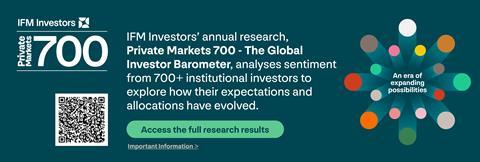Infrastructure debt remains an attractive opportunity despite a challenging economic outlook that could bring with it an increase in credit market defaults, argue David Cooper, Head of EMEA and Australian Infrastructure Debt and Jacob Otto, Director, Debt Product Specialist of IFM Investors
Against a challenging macro backdrop which could produce an uptick in credit market defaults, IFM Investors believes infrastructure debt’s typical resilience to cyclical slowdowns will be a key theme over the year.
Infrastructure assets are traditionally resilient to cyclical slowdowns due to inelastic demand for their services. This is because infrastructure assets are essential to the smooth functioning of daily life, providing services like electricity, heating, water supply and transport. They are not completely immune to cyclical slowdowns, but the impacts should be less severe than for corporations that are leveraged to discretionary consumer spending.
From a credit perspective, infrastructure businesses are judged to be resilient to rising inflation as they often have contracted pricing mechanisms that are linked to inflation, and the ability to hedge the cost of business inputs given the long life of their assets and relatively stable demand.
You can now read the full thought leadership at the link below
Supporting documents
Click link to download and view these filesSecular tailwinds creating infrastructure debt opportunities
PDF, Size 0.12 mb









